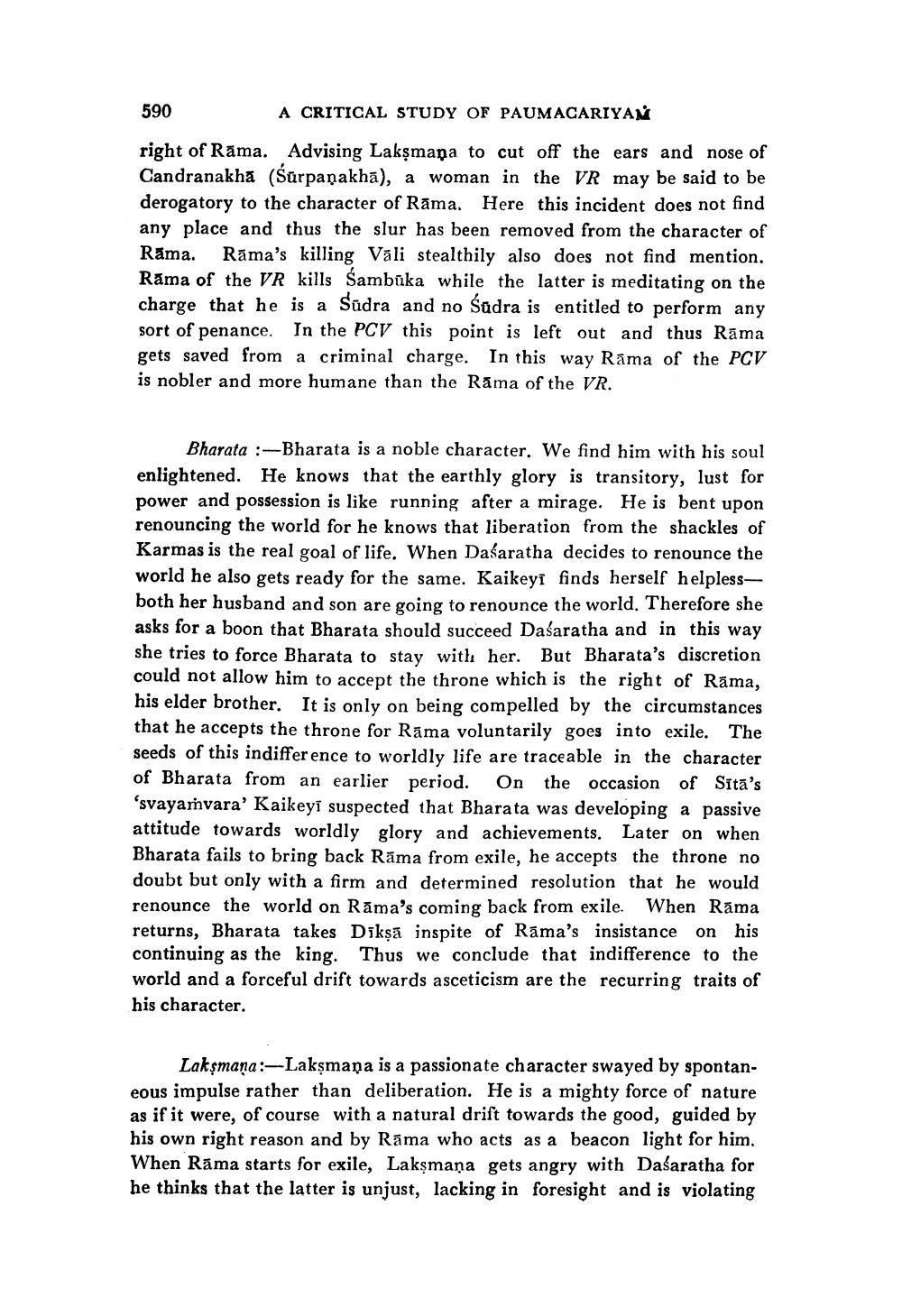________________
590
A CRITICAL STUDY OF PAUMACARIYAN
right of Rāma. Advising Lakşmana to cut off the ears and nose of Candranakha (Sūrpanakha), a woman in the VR may be said to be derogatory to the character of Rāma. Here this incident does not find any place and thus the slur has been removed from the character of Rāma. Rāma's killing Vali stealthily also does not find mention. Rāma of the VR kills Śambūka while the latter is meditating on the charge that he is a Sadra and no Sūdra is entitled to perform any sort of penance. In the PCV this point is left out and thus Rāma gets saved from a criminal charge. In this way Rāma of the PCV is nobler and more humane than the Rama of the VR.
Bharata :-Bharata is a noble character. We find him with his soul enlightened. He knows that the earthly glory is transitory, lust for power and possession is like running after a mirage. He is bent upon renouncing the world for he knows that liberation from the shackles of Karmas is the real goal of life. When Daśaratha decides to renounce the world he also gets ready for the same. Kaikeyi finds herself helplessboth her husband and son are going to renounce the world. Therefore she asks for a boon that Bharata should succeed Dasaratha and in this way she tries to force Bharata to stay with her. But Bharata's discretion could not allow him to accept the throne which is the right of Rama, his elder brother. It is only on being compelled by the circumstances that he accepts the throne for Rāma voluntarily goes into exile. The seeds of this indifference to worldly life are traceable in the character of Bharata from an earlier period. On the occasion of Sita's 'svayamvara' Kaikeyi suspected that Bharata was developing a passive attitude towards worldly glory and achievements. Later on when Bharata fails to bring back Rāma from exile, he accepts the throne no doubt but only with a firm and determined resolution that he would renounce the world on Rāma's coming back from exile. When Rama returns, Bharata takes Dikșa inspite of Rama's insistance on his continuing as the king. Thus we conclude that indifference to the world and a forceful drift towards asceticism are the recurring traits of his character.
Lakşmana:-Lakṣmaṇa is a passionate character swayed by spontaneous impulse rather than deliberation. He is a mighty force of nature as if it were, of course with a natural drift towards the good, guided by his own right reason and by Rāma who acts as a beacon light for him. When Rama starts for exile, Lakşmaņa gets angry with Daśaratha for he thinks that the latter is unjust, lacking in foresight and is violating




